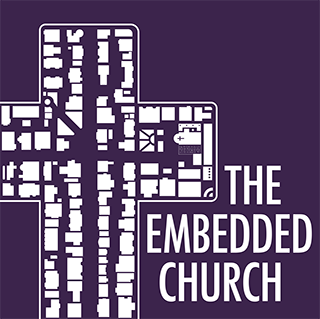Cultivating Neighborhood Shalom
Episode 10 - Season 4 finale
Aaand, that’s a wrap! What we learned…
In this final episode of Season 4, Sara Joy and Eric, along with Josh Yates and Chris Elisara from Ormond Center, reflect on some of the common themes and fresh discoveries of the past 9 episodes. Here are a few snippets from this conversation.
Audience: We discovered that we have at least three distinct audiences for our podcast. Obviously we have pastors listening as the majority of our guests have been pastors. But we have practitioners who have been trained or work in the built environment (developers, architects, planners) listening as well. And, we have a number of listeners who are neither pastors nor practitioners, but are very interested in this subject. We call these listeners the "piqued. Which of these categories best describes you?
Churches: Churches are important anchor institutions in most communities. Churches play a unique role in bringing shalom to particular places. Local churches can help to contain and sustain the narrative in a neighborhood. While we are committed to the idea that the church scattered can contribute to shalom, we continue to be inspired by all the surprising ways that the gathered church (with a humble, outward posture) gets drawn into what God is doing in the neighborhood.
Geography: The guests for Season 4 come from a variety of geographic contexts. Whether its better to define those contexts in terms of cities or states depends on how important it is to you that Texas gets named. In any case, we noted that we want to continue to expand the geographic variety of our guests.
Shalom as Soil: We discovered that our metaphor of soil being made in a bucket as a picture of the conditions needed for forming shalom was great, but needed to be developed a bit. The bucket analogy helps us see how local materials are transformed and utilized to bring new life to a community. But the bucket analogy is somewhat limited in its usefulness to leaders because it suggests a mostly passive role for community leaders who are seeking shalom. We turned to a compost heap as a helpful auxiliary metaphor for seeking shalom. The compost heap also makes soil, but unlike the bucket, it makes soil by an active process of someone adding materials to it. We talked about how those seeking shalom need to be adept in both passive waiting for and active contributing to the shalom of the local community.
Challenge: We end this episode by thinking of specific challenges for each of our three listener groups: Pastors, Professionals, and the Piqued. We’re hoping that every one of our listeners will identify with one of these groups and will consider taking on one of our challenges.
We want to learn more about who is out there listening! Please take this short survey to tell us who you are, why you listen, & how to make the podcast better for you!
Links to resources and terms from this episode:
Articles, Books, Media, & organizations
Sex, Economy, Freedom, & Community: Eight Essays by Wendell Berry
Coda Challenges for Season 4 - developed by Ormond Center
Key Terms
Hospitality
Shalom

